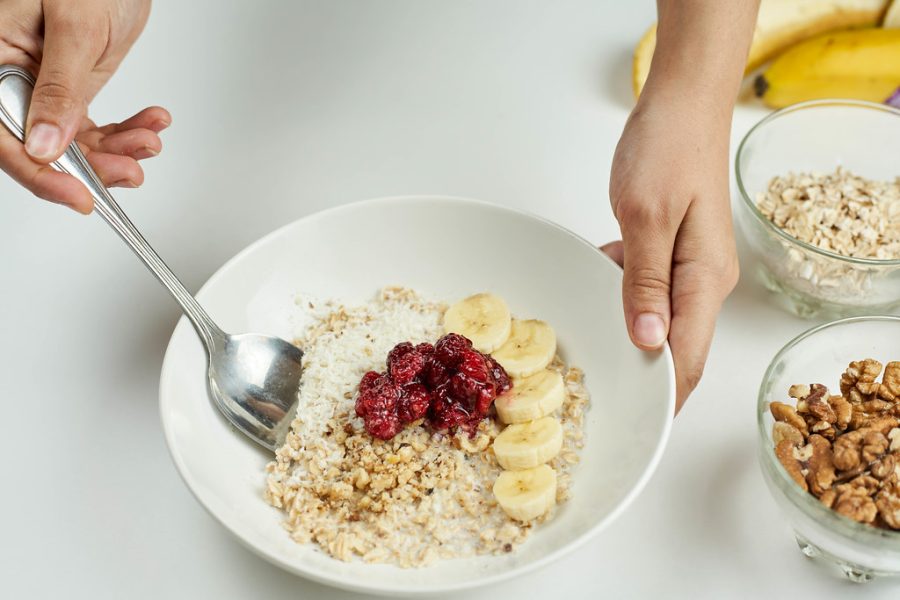Coffee, desk jockey’s magical drink.
Today we decided to seriously brag about coffee, counting the nine advantages of coffee.
1.Refreshes you
This is the most important reason why coffee is a fantastic drink for desk jockey.
Coffee contains caffeine, a central nervous system stimulant known for fighting fatigue and boosting energy levels.
One small study found that caffeine intake during cycling shrank the duration of fatigue by 12% and significantly reduced subjective fatigue in participants.
However, this effect varied greatly from person to person.
2.Maybe, body fat would be a little lower
According to some studies, coffee can alter fat storage and support gut health, both of which may benefit weight management.
For example, a review of 12 studies concluded that higher coffee intake may be associated with reduced body fat, especially in men.
In another study, increased coffee intake was associated with decreased body fat in women.
Additionally, one study found that people who drank 1 to 2 cups of coffee per day were 17% more likely to achieve recommended levels of physical activity compared to those who drank less than 1 cup of coffee per day.
On a side note, coffee drinkers may have healthier lifestyles, so don’t think you can get skinny just by drinking coffee.
3.It might cheer you up a little
Some studies have found that drinking coffee may reduce the risk of depression.
According to a review of seven studies, each cup of coffee people drank each day was associated with an 8 percent lower risk of depression.
What’s more, a study of more than 200,000 people showed that coffee consumption was associated with a lower risk of death by suicide.
4.Higher, faster, stronger
A study of 126 older adults found that coffee consumption improved physical functioning and accelerated gait speed, even after researchers adjusted for factors such as age, abdominal fat, and physical activity level.
Additionally, a large meta-analysis says that moderate caffeine intake can slightly improve power output and timed completion times.
Still, the exact performance of coffee varies from person to person.
5.Slow your cognitive decline
Despite the mixed results of the research, some studies suggest that coffee may help prevent certain neurodegenerative diseases, including Alzheimer’s disease and Parkinson’s disease.
According to one review of 13 studies, people who regularly consumed caffeine were found to have a significantly lower risk of developing Parkinson’s disease, and caffeine intake slowed the progression of Parkinson’s disease over time.
Another review of 11 observational studies of more than 29,000 people also found that the more coffee people drank, the lower their risk of developing Alzheimer’s disease.
In addition, several studies suggest that moderate coffee consumption may reduce the risk of dementia and cognitive decline.
6.It’s good for the liver
Coffee is also a good friend of the liver, especially in individuals at risk for liver disease. Consumption of more than 2 cups of coffee per day in people with established liver disease has been shown to be associated with a lower incidence of fibrosis and cirrhosis.
Other studies have shown that the more coffee people drink, the lower their risk of dying from chronic liver disease. One cup of coffee a day was associated with a 15 percent lower risk, while four cups of coffee a day was associated with a 71 percent lower risk.
7.Even, it can reduce some of the risk of death
A review of 40 studies concluded that drinking two to four cups of coffee per day was associated with a reduced risk of death, regardless of factors such as age, weight status and alcohol consumption.
A regression analysis of 40 studies found a non-linear negative association between coffee consumption and all-cause mortality, cardiovascular disease (CVD) and cancer.
Similarly, another study of 1,567 people with long-term follow-up at 12 and 18 years found that caffeinated coffee consumption was associated with lower all-cause mortality and cancer mortality.
8.May be associated with reduced risk of developing type 2 diabetes
Some research suggests that drinking coffee regularly may reduce the risk of developing type 2 diabetes in the long run.
In fact, a review of 30 studies found that each cup of coffee people drank each day was associated with a 6% lower risk of developing type 2 diabetes.
This is thought to be due to coffee’s ability to preserve the function of the beta cells in the pancreas, which are responsible for producing insulin to regulate blood sugar levels.
In addition, coffee is rich in antioxidants, which may affect insulin sensitivity, inflammation and metabolism.
9.It may help with heart health
Some studies suggest that drinking coffee may be good for heart health. In fact, a meta-analysis found that drinking three to five cups of coffee a day was associated with a 15 percent lower risk of heart disease.
However, people with uncontrolled high blood pressure should avoid high doses of caffeine. A study of more than 21,000 people also found that higher coffee intake was associated with a significantly lower risk of heart failure.
Many people have gotten to the point where they can’t function without coffee, and with regular caffeine intake, the body may develop a mild dependence.
If you suddenly stop drinking it, you may experience headaches, fatigue, anxiety and inability to concentrate. However, these symptoms will disappear on their own in a few days.

For healthy adults, caffeine intake is relatively safe.
However, for some populations, coffee is still not something to be craved:
Although Health Canada, the American College of Obstetricians and Gynecologists, and the American Pregnancy and Childbirth Association believe that coffee can be consumed in moderation during pregnancy and recommend no more than 150 to 300 mg of caffeine per day, which is about 2 standard cups (235 ml). However, in recent years there has been updated evidence that coffee consumption during pregnancy may be associated with an increased risk of spontaneous abortion.
In addition to maternal, people with uncontrolled high blood pressure should avoid high doses of caffeine.
In addition, relatively speaking, Americano and latte will be healthier, if you drink high sugar coffee (beverage) with syrup and chocolate, you still need to be careful about your sugar intake.



